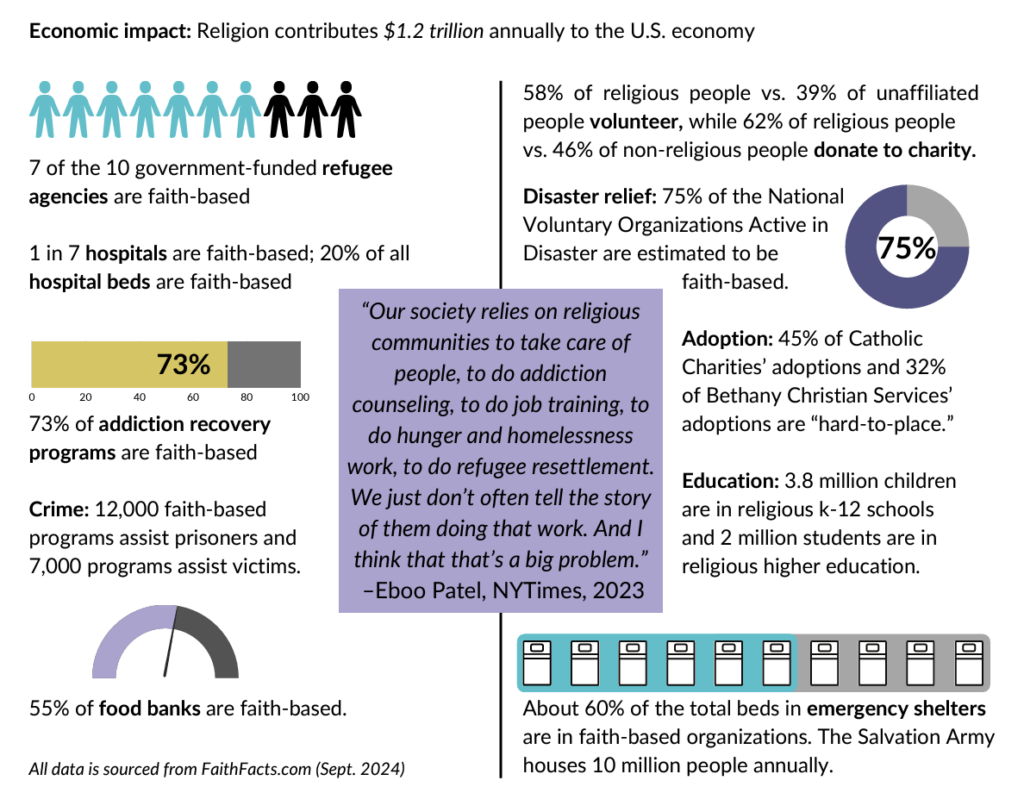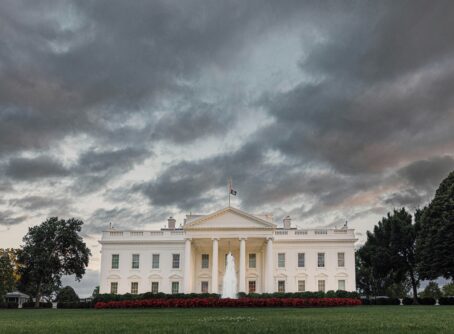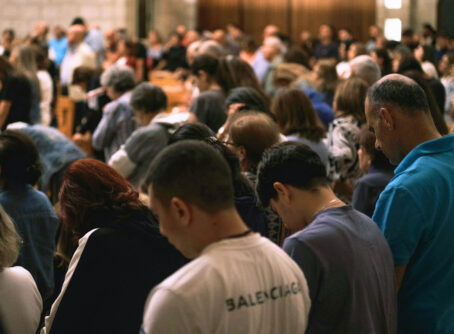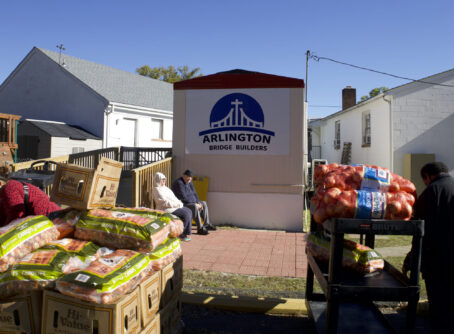Abortion, immigration, inflation, the wars in Ukraine and the Middle East, economic opportunity, racism . . . the two main presidential candidates, their parties, and their party platforms have focused on these pressing issues. However, they have neglected two other vital matters of American public life: the centrality of religion to many Americans and their organizations and the need to reinvigorate the faith-based initiative.
Yes, the US is becoming more secular, and the number of “nones” is expanding—people involved with spirituality but detached from organized religion. Yet religion still hold critical importance in American society, as diverse indicators like these demonstrate:


In this setting, the faith-based initiative is an indispensable public policy innovation. Our federal, state, and local governments typically turn to private organizations to advance social-service, health, and education goals, and many of the private organizations that offer such services are religious. Into the 1990s—and too often even now—officials believed that it was unconstitutional for government agencies to partner with faith-based organizations, along with secular ones, to reach the important common good ends. The faith-based initiative corrects this misconception. It includes a set of laws, regulations, government officials and offices, all aligned with the vision that both the Constitution and good public policy require a level playing field. Faith-based organizations, without first secularizing themselves, must have an equal opportunity to partner with government to use government funds to serve people in need.
President Bill Clinton signed into law the first federal legislation that included the Charitable Choice provision, ensuring equal opportunity for faith-based organizations. President George W. Bush solidified this principle by establishing federal equal treatment regulations and creating a White House faith-based office and faith-based Centers in major federal agencies. Presidents Obama, Trump, and Biden have each, in their own ways, maintained these vital institutions and rules. But much of the creative energy behind the faith-based initiative has waned, and federal officials have not created ways to enable the wide range of faith-based organizations to continue to partner with government even as LGBTQ civil rights are advanced. Without a renewed, and creative, recommitment to the “all hands on deck” ideal of the faith-based initiative (President Obama’s rationale for maintaining the level playing field rules), the ability of our governments to respond effectively to social challenges while honoring the diverse convictions of our diverse population will diminish.
The 2024 Democratic platform commits to protecting the constitutional right to religious exercise and emphasizes the White House Office of Faith-Based and Neighborhood Partnerships as important in enabling “the government [to] work better with faith and community groups to serve people in need.” But the party’s commitment to LGBTQ rights and abortion sharply curtail the religious freedom that many faith-based organizations need to serve as inspired by their particular faiths. The 2024 Republican platform, by contrast, ignores the faith-based initiative entirely. But it proclaims that the party is committed to the right of everyone, whatever their “faith and tradition,” not only to hold their particular beliefs but “also to act in accordance with those Beliefs, not just in places of Worship, but in everyday life.” That’s a strong commitment to institutional religious freedom, making sure that religious freedom is protected when other rights are advanced.
To respect and accommodate the sincere and diverse deep commitments of Americans and American civil society organizations, our governments should revitalize the faith-based initiative. This is the community of offices and officials that must press the government in its laws and regulations to protect the freedom that diverse organizations need in order to best serve the common good. It is the community of offices and officials that must show the way to agencies about how to best connect with faith-based and community-based organizations to draw on their unique strengths and local connections. Effective government needs an “all hands on deck” approach that respects the institutional religious freedom of all, including faith-based organizations committed to conservative moral values.
The next federal administration should prioritize the following initiatives:
1. Equal Opportunity: Empower the White House Partnership Initiative
The partnership is the federal government’s commitment to ensuring that faith-based organizations of all religions have equal opportunity with secular organizations to partner with government to provide needed services.
- Empower the White House Office of Faith-Based and Neighborhood Partnerships and its counterpart Centers (in HHS, USAID, Ed, HUD, USDA, etc.) with an authoritative voice and expanded staff;
- Focus the Office and Centers on improving federally funded services, elevating the role of faith- based and community organizations, and protecting the freedoms faith-based charities and houses of worship need, not solely on generating support for the administration’s policies;
- Reinvigorate the role of the Office and Centers to educate—inside and outside the federal government and to states and localities—about the level playing field rules and about the vital contributions made by faith-based and small community organizations.
2. Equal Protection: Lead a Federal Fairness for All Initiative
Americans, including diverse religious and immigrant communities, hold diverse convictions about human sexuality. Federal law should affirm equal civil rights so that people and organizations with their varied beliefs and practices can live side-by-side without legal penalty. In seeking to win others to their views, people should use examples and persuasion, not legal coercion.
The law should protect LGBTQ persons and, simultaneously, protect religious people and organizations that hold diverse views and practices. A both/and approach in laws and regulations will ensure that all rights are protected and that faith-based and community organizations can continue to partner with government to make their best contributions to the common good.
Fairly protecting all of our nation’s diverse and often conflicting convictions and practices concerning religion and sexuality embodies and extends key American principles that support pluralism:
A deep commitment to respecting each others’ rights to their personal convictions and ways of life;
- A deep commitment to respecting each others’ rights to their personal convictions and ways of life;
- The foundational freedoms of religion, expression, and association;
- A diverse and thriving civil society through which people can peacefully live out their beliefs and make their distinctive contributions to others;
- A government that protects, supports, and partners with civil society organizations, thereby respecting personal and organizational freedom and strengthening civic pluralism.
The faith-based initiative, though not the only vital public policy, deserves the careful and energetic attention of the next administration. Given the centrality of religious and faith-based organizations, it should be an early, strong, and foundational policy.
Stanley Carlson-Thies is the Founder and Senior Director of the Institutional Religious Freedom Alliance (IRFA), a program of the Center for Public Justice.



